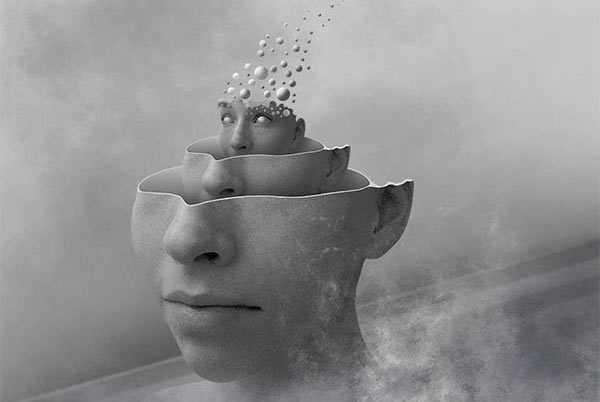The West Redefines Itself

This statement could not be more prescient. We now see supposed “educated” adults examine an issue so much that it vanishes.
Issues with race have been examined so much, and now we have a Rachel Dolezal.
We have examined gender so closely that we now have Caitlyn Jenner.
In addition to considering Feyman’s assumptions as an analogy, also consider what the Heisenberg principle states.
As all of humanity increasingly attempts to use science to answer questions that only religion can, we will see more and more confusion. Ironically, the Bible explains this. Nothing is new under the sun. Do not attempt to know what is beyond you.
“I’m all for free speech, but…” proclaims the chorus of Western intellectuals following the Charlie Hebdo attacks in Paris, imagining that their role in this tragedy is to make simple things look complicated. They are gravely misguided: there are no “buts” in that script.
In the 1940s, as scientists began to develop the theory of quantum electrodynamics, they discovered a weird problem in their equations: the electron mass seemed to be correct in the first approximation, but all further attempts to define it more precisely resulted in impossibly divergent series. The more they tried to refine the number, the more absurd it became, with the electron mass growing to infinity.
Finally the American physicist Richard Feynman introduced a cut-off point, suggesting to subtract infinity from infinity. In a work that won him the Nobel Prize, Feynman came up with a procedure called “renormalization.” Roughly speaking, it prohibits endless refinements and claims that the first approximate value is the most correct. In other words, don’t kill yourself with infinite refinements and use Occam’s razor.
It seems we now need a similar cut-off point in order to understand what is happening in the real world. Whoever brings “renormalization” into public life will also deserve a Nobel Prize because, frankly, we’re killing ourselves with infinite refinements.
The facts are as plain as a pikestaff: the French journalists were murdered for exercising free speech. They were real live people. The Islamists did it in order to intimidate the free world and take away its freedom of speech.
“But…” we hear from all directions, “but…”
“…But those cartoons were offensive to believers.”
“…But they overstepped all sorts of boundaries.”
“…But this is merely a mutual misunderstanding of each other’s cultural traditions.”
“…And anyway, let’s not confuse terrorism with Islam, which is a peaceful religion.”
“…And are you saying that Islam somehow promotes extremism? Are you really equating Islam with terrorism? That sounds like fascism! Shame on you!”
“…And aren’t you forgetting that different cultures have different values?”
“…And why all the fuss about those dead journalists when more people are getting killed in the Iraqi war?
And so on and so forth, until after five or six loops of such “divergent series,” the plain fact of a brutal murder transforms into an i nfinitely complex cultural phenomenon. And with it, anyone speaking against Islamic terrorism transforms into a narrow-minded bigot, ignorant of traditional cultures with their spiritual values, someone who unjustly smears all Muslims and forgets that the West is guilty before the Third World for colonialism.
nfinitely complex cultural phenomenon. And with it, anyone speaking against Islamic terrorism transforms into a narrow-minded bigot, ignorant of traditional cultures with their spiritual values, someone who unjustly smears all Muslims and forgets that the West is guilty before the Third World for colonialism.
Allow me another math metaphor. There is a mathematical concept of a “fuzzy set.” It is vital in developing artificial intelligence and recognition technologies because our world, as it were, consists of fuzzy sets.
We call some women “beautiful” and some others we call “ugly.” We say that some countries are “free” and some others are “dictatorships.” But if we begin to refine our arguments, we will often find out that “free” countries lack certain freedoms, or that an “ugly” woman has a shapely chin, an attractive nose, or at least a mysterious color in her eyes. That’s because beauty and freedom are fuzzy sets. And if your goal is infinite precision, you’ll find neither beauty nor freedom.
Some things don’t need to be precise.
As for the mutual misun{“type”:”block”,”srcClientIds”:[“e64ff0e8-7dc8-4153-9bf1-44032198bf01″],”srcRootClientId”:””}derstanding of each other’s cultural traditions, let’s make one thing clear: some traditions are better than others.
At one time India had a tradition of self-immolation of widows in the husband’s funeral pyres. The British colonizers could say, as modern intellectuals do, that this was just a different cultural tradition they had to respect. But the British disrespected local traditions and put up gallows next to the funeral pyres. Anyone who tried to throw a widow into the fire was hanged right next to it. That was the end of the burning of widows.
The Maori in New Zealand had a cultural tradition of cannibalism. A young warrior would not obtain a proper social status until he’d cut off the head of a man from another tribe. Once again, the British could start talking about the drama of mutually misunderstood cultural values, but they chose to ban cannibalism and head-hunting.
The Aztecs had a tradition of human sacrifice. But the narrow-minded bigot Hernando Cortes, who conquered Tenochtitlan, was not a multiculturalist and so he told the priests, their hair covered in dried human blood, to knock it off. That almost cost him his life, his victory, and Tenochtitlan.
The world has plenty of other remarkable cultural traditions. Some cultures practiced artificial cranial deformation by binding the heads of their infants. Others are still cutting out the clitoris of their young girls. The Etoro people of Papua New Guinea have a notable cultural tradition of all-inclusive pedophilia, as they believe young boys must ingest the semen of their elders daily from the age of 7 until they turn 17 to achieve adult male status and to properly mature and grow strong. The procedure is mandatory — “it’s for the children,” don’t you know.
So not all traditions are equal. Some traditions are absolutely evil. Europe, too, has given up on some of its traditions, like the burning of witches. And China has stopped the foot binding of little girls, along with its time-honored tradition of death by a thousand cuts.
Some may be surprised, but Islam at one point has also abandoned a few traditions. For the first two-thirds of the twentieth century Muslims didn’t blow anyone up for free speech. On the contrary, their best leaders, such as Kemal Ataturk, or Mohammed Zahir Shah, or Reza Pahlavi brought their respective countries closer to Western standards. It was only after the West betrayed its own standards by adopting moral relativity and multiculturalism, that former Ataturks and Zakir Shahs were replaced by Bin Ladens and the Kuashi brothers.
In this sense, the problem with the modern world is not the strengthening of Islamism. It is the weakening of the West, which keeps refining, recalibrating, and redefining itself to death.
It’s a fool’s errand, to look for precision in the world of fuzzy sets. As theoretical physicist Feynman once said, “it is really quite impossible to say anything with absolute precision, unless that thing is so abstracted from the real world as to not represent any real thing.”
At this point in history, precision is the enemy of clarity. The West needs renormalization.
Oleg Atbashian, a writer and graphic artist from the former USSR, is the author of Shakedown Socialism, of which David Horowitz said, “I hope everyone reads this book.” In 1994 he moved to the U.S. with the hope of living in a country ruled by reason and common sense, appreciative of its freedoms and prosperity. To his dismay, he discovered a nation deeply infected by the leftist disease of “progressivism” that was arresting true societal progress. American movies, TV, and news media reminded him of his former occupation as a visual propaganda artist for the Communist Party. Oleg is the creator of a satirical website ThePeoplesCube.com, which Rush Limbaugh described on his show as “a Stalinist version of The Onion.” His graphic work frequently appears in the American Thinker



